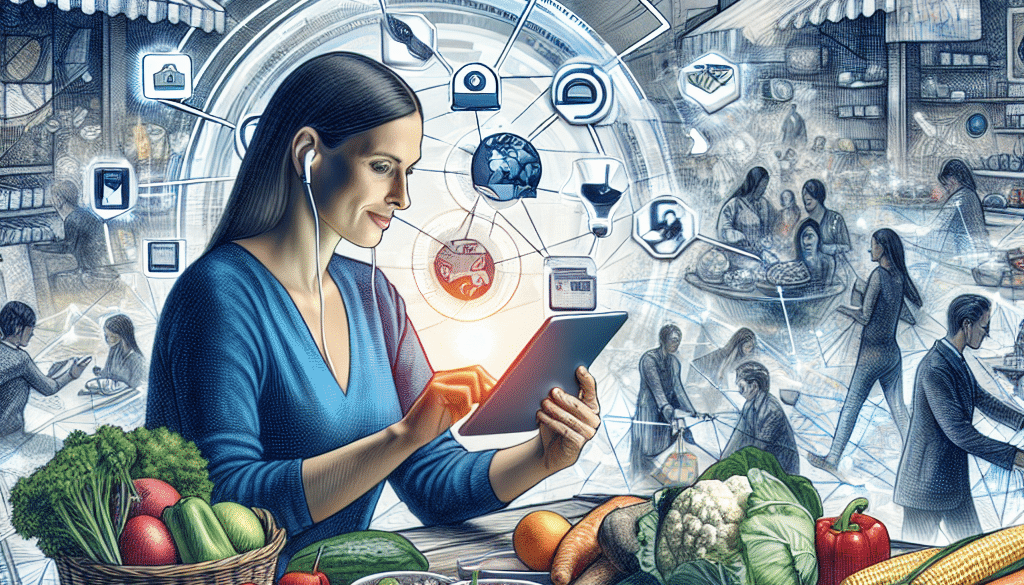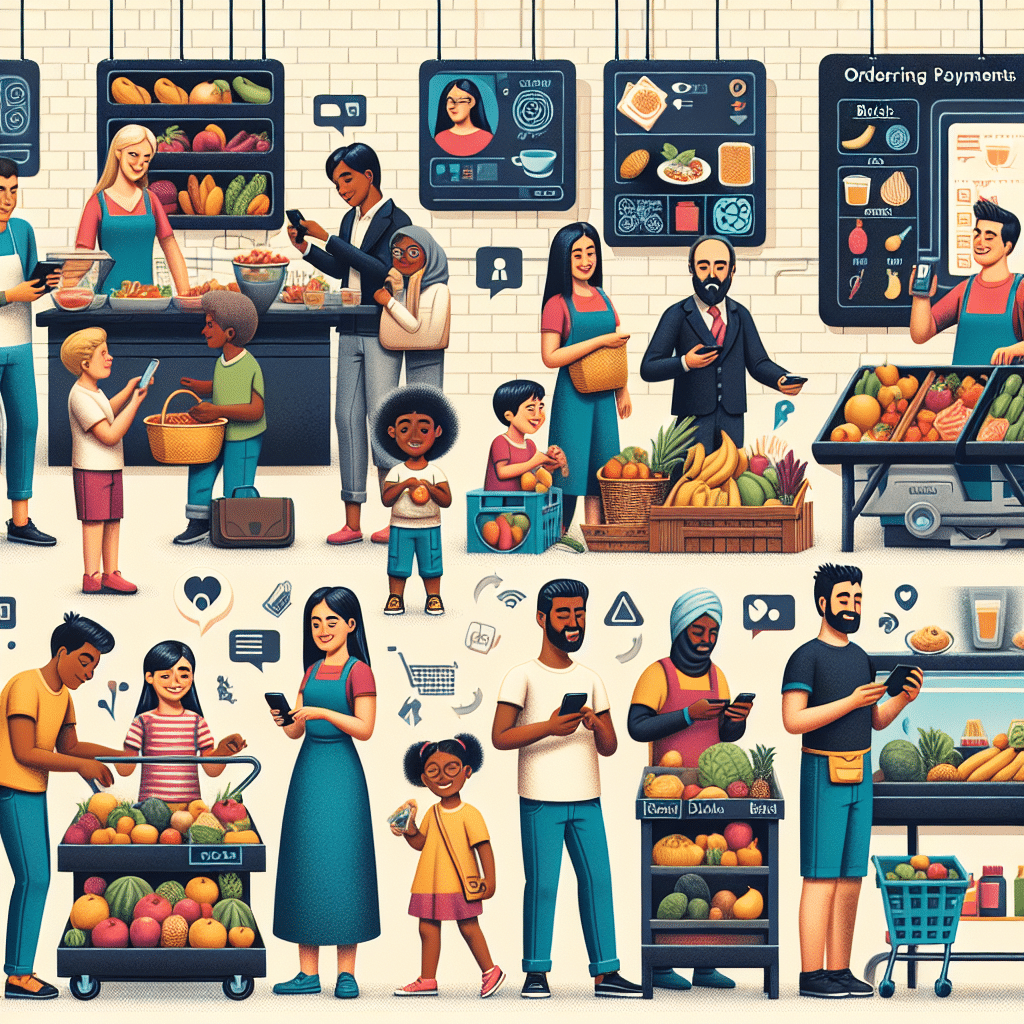Always-on Consumer: Food, Technology, and Market Dynamics
-
Table of Contents
- Always-On Consumer Trends: Navigating Food, Technology, and Market Dynamics
- The Rise of the Always-On Consumer
- Technology’s Role in Shaping Food Consumption
- Market Dynamics and Consumer Expectations
- Case Studies: Success Stories in the Always-On Economy
- Statistics: The Impact of Always-On Consumption
- Challenges and Opportunities
- Conclusion: Embracing the Always-On Consumer
- ETChem: Meeting the Protein Needs of the Always-On Consumer
Always-On Consumer Trends: Navigating Food, Technology, and Market Dynamics
The landscape of consumer behavior is rapidly evolving, driven by technological advancements and changing lifestyles. The concept of the ‘always-on’ consumer has emerged as a defining trait of modern society, particularly in the food industry. This article delves into the intersection of food, technology, and market dynamics, exploring how businesses are adapting to meet the demands of consumers who expect convenience, quality, and variety at all times.
The Rise of the Always-On Consumer
The ‘always-on’ consumer is a product of the digital age. With smartphones and internet access becoming ubiquitous, consumers are constantly connected, seeking instant gratification and expecting services to be available 24/7. This shift has significant implications for the food industry, which has had to transform its approach to service delivery, product development, and customer engagement.
Technology’s Role in Shaping Food Consumption
Technology has been a game-changer in how consumers interact with food brands. From online ordering systems to food delivery apps, technology has made it possible for customers to have a wide array of dining options at their fingertips. Here are some key technological innovations that have reshaped the food industry:
- Mobile Ordering and Delivery Apps: Companies like UberEats, Grubhub, and DoorDash have revolutionized food delivery, making it possible to order from a variety of restaurants with a few taps on a smartphone.
- Meal Kit Services: Services like Blue Apron and HelloFresh offer pre-portioned ingredients and recipes delivered to consumers’ doors, catering to the desire for home-cooked meals without the hassle of grocery shopping.
- Food Traceability and Blockchain: Consumers are increasingly concerned about the origin and safety of their food. Blockchain technology is being used to enhance transparency in the food supply chain.
Market Dynamics and Consumer Expectations
The always-on consumer has not only changed the way food is ordered and delivered but also influenced market dynamics and consumer expectations. The following trends highlight these changes:
- 24/7 Availability: Consumers expect to be able to purchase food at any time of day, leading to the growth of 24-hour convenience stores and round-the-clock delivery services.
- Personalization: With access to consumer data, companies can tailor their offerings to individual preferences, dietary restrictions, and lifestyle choices.
- Sustainability: An increasing number of consumers are making purchasing decisions based on the environmental impact of their food, leading to a rise in plant-based products and sustainable packaging.
Case Studies: Success Stories in the Always-On Economy
Several companies have successfully adapted to the demands of the always-on consumer. For instance, Domino’s Pizza has become a leader in digital ordering, allowing customers to order via text, tweet, smartwatch, and even a “zero-click” app. Another example is Starbucks, which has implemented a mobile order and pay system that lets customers skip the line, enhancing convenience and customer satisfaction.
Statistics: The Impact of Always-On Consumption
Recent statistics underscore the impact of the always-on consumer on the food industry:
- A study by the National Restaurant Association found that 60% of restaurant orders are now consumed off-premises, highlighting the importance of delivery and takeout services.
- According to Statista, the global online food delivery market is projected to reach $154.34 billion by 2023, demonstrating the growing preference for digital ordering.
- The meal kit delivery service market is expected to grow by $10.26 billion during 2020-2024, according to Technavio’s market research report.
Challenges and Opportunities
While the always-on consumer presents numerous opportunities for the food industry, there are also challenges to consider:
- Logistics and Delivery: Ensuring timely and efficient delivery is crucial, as consumers have little tolerance for delays or errors.
- Data Security: With increased digital interactions comes the responsibility of protecting consumer data from breaches and cyber-attacks.
- Health and Wellness: As consumers become more health-conscious, the food industry must balance convenience with nutritional value and healthy options.
Conclusion: Embracing the Always-On Consumer
In conclusion, the always-on consumer has transformed the food industry, compelling businesses to integrate technology and adapt to new market dynamics. Companies that embrace these changes and prioritize convenience, personalization, and sustainability are poised to thrive in this new landscape. By understanding and catering to the needs of the always-on consumer, food businesses can create a competitive edge and secure their place in the future of food consumption.
ETChem: Meeting the Protein Needs of the Always-On Consumer
For businesses looking to cater to the health-conscious, always-on consumer, ETChem’s protein products offer an ideal solution. Their high-quality collagens are perfect for companies aiming to develop food and beverage products that align with the demands for convenience, nutrition, and sustainability.
About ETChem:
ETChem, a reputable Chinese Collagen factory manufacturer and supplier, is renowned for producing, stocking, exporting, and delivering the highest quality collagens. They include marine collagen, fish collagen, bovine collagen, chicken collagen, type I collagen, type II collagen and type III collagen etc. Their offerings, characterized by a neutral taste, instant solubility attributes, cater to a diverse range of industries. They serve nutraceutical, pharmaceutical, cosmeceutical, veterinary, as well as food and beverage finished product distributors, traders, and manufacturers across Europe, USA, Canada, Australia, Thailand, Japan, Korea, Brazil, and Chile, among others.
ETChem specialization includes exporting and delivering tailor-made collagen powder and finished collagen nutritional supplements. Their extensive product range covers sectors like Food and Beverage, Sports Nutrition, Weight Management, Dietary Supplements, Health and Wellness Products, ensuring comprehensive solutions to meet all your protein needs.
As a trusted company by leading global food and beverage brands and Fortune 500 companies, ETChem reinforces China’s reputation in the global arena. For more information or to sample their products, please contact them and email karen(at)et-chem.com today.





